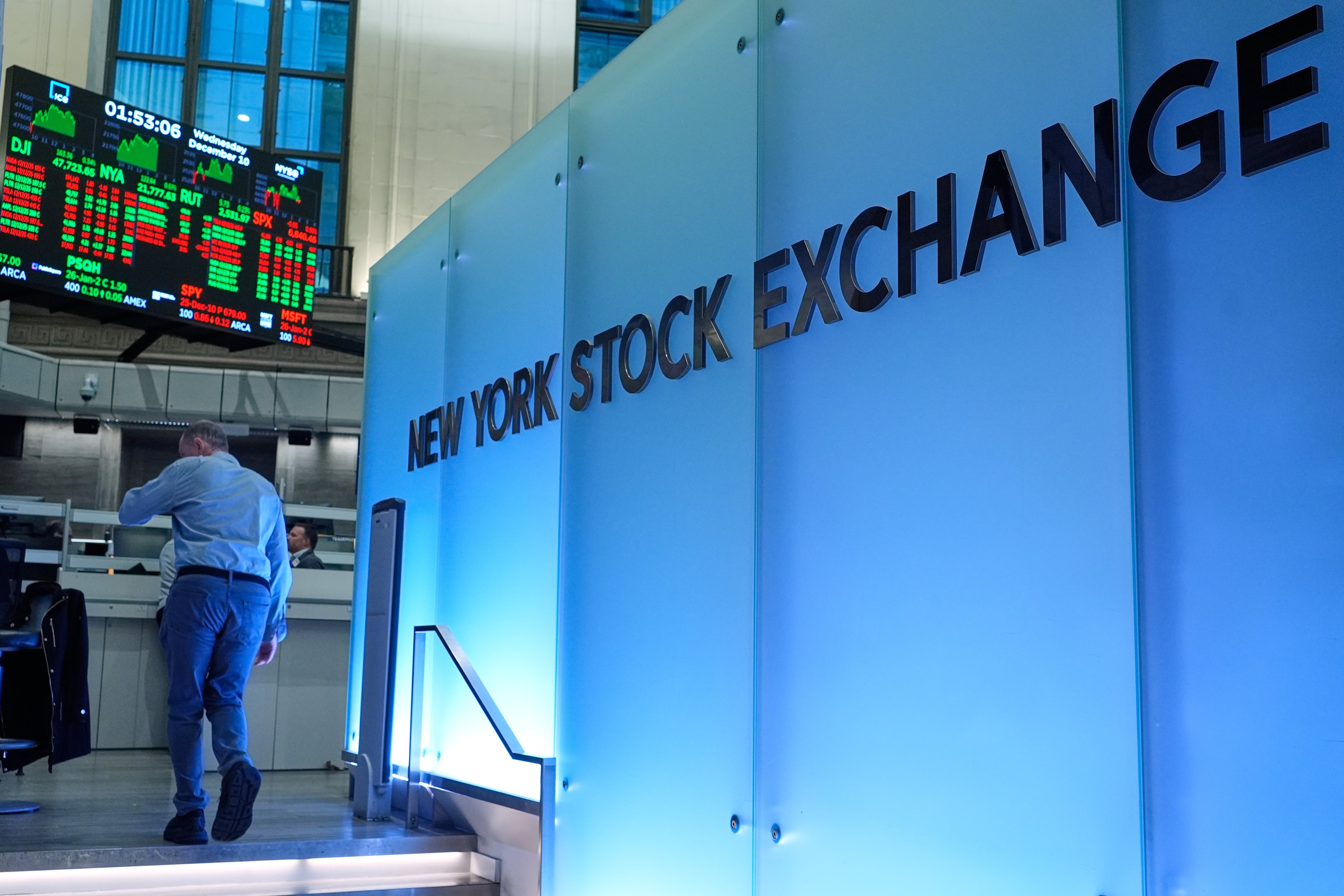NEW YORK (AP) — Wall Street still doesn’t seem to care much about the latest shutdown of the U.S. government, and U.S. stocks are rising toward more records on Wednesday, but yields are sinking in the bond market following the latest discouraging signals on the economy.
The S&P 500 rose 0.4% and was on track to top its all-time high set last week. The Dow Jones Industrial Average was adding 105 points, or 0.2%, to its own record set the day before, while the Nasdaq composite was 0.5% higher, with an hour remaining in trading.
The action was stronger in the bond market, where Treasury yields dropped after a report suggested hiring may have been much weaker across the country last month than economists expected.
Employers outside the government actually cut 32,000 more jobs than they added, according to the survey by ADP Research, with the Midwest taking particularly hard hits. What’s worse, the survey also revised down its numbers for employment in August, down to a loss of 3,000 jobs from a previously reported gain of 54,000.
Usually, traders on Wall Street wait for a more comprehensive jobs report that comes from the U.S. government each month to suss out how the job market is doing. The U.S. government gets its data from a larger sample of employers than the ADP survey, which does not have a perfect track record predicting what the more comprehensive report will say each month.
But the next Labor Department report, scheduled for Friday, is likely to be delayed because of the shutdown of the U.S. government that began just after midnight.
“Whether this is an accurate statistic or not, people in the markets believe that it signals something,” according to Carl Weinberg, chief economist at High Frequency Economics. “The signal from today’s headline will not be a good one.”
The hope on Wall Street has been that the job market will continue to slow by a very precise amount: enough to convince the Federal Reserve to keep cutting interest rates, but not by so much that it brings a recession.
That’s a delicate balance to achieve, and every economic report from the U.S. government that gets delayed only increases the uncertainty about whether it’s possible. Stocks have already run to records on expectations for coming cuts to rates, so a lack of them could send the market lower.
To be sure, the stock market and economy have typically powered through past shutdowns, particularly if they are short in duration. But this shutdown could be different in a couple ways, including the threat that the White House may use it to push for large-scale firings of federal workers.
On Wall Street, Nike rose 5.9% after blowing past analysts’ expectations for profit in the latest quarter. The athletic giant reported strong growth for apparel sold in North America.
Lithium America’s stock that trades in the United States jumped 23.9% after the Canadian company said the U.S. government agreed to let it draw from a previously announced $2.26 billion loan. As part of the agreement, the U.S. Department of Energy will take an ownership stake in the Vancouver-based company.
Lithium Americas is developing a lithium project in Nevada with General Motors, and it follows Intel and other companies where the U.S. government has recently taken an ownership stake.
On the losing side of the market was Peloton Interactive, which dropped 6.7%. It got a cold reception to its unveiling of an AI and computer vision system, along with other equipment designed for cross training.
Corteva sank 9% after announcing a plan to split into two companies, each with its own stock. One will hold onto the company’s seed business, while the other will focus on crop protection.
Cal-Maine Foods fell 1.7% after the egg company’s profit and revenue for the latest quarter fell short of analysts’ expectations.
In stock markets abroad, indexes rose in Europe following a mixed finish in Asia.
In the bond market, the yield on the 10-year Treasury sank to 4.10% from 4.16% late Tuesday. It dropped as low as 4.09% earlier in the day.
Yields fell as the weaker-than-expected payroll report from ADP firmed expectations for coming cuts to rates by the Fed. So did another report showing that U.S. manufacturing was weaker last month than economists expected.
Several manufacturers told the Institute for Supply Management’s surveyors that they’re still feeling pain because of tariffs.
“Steel tariffs are killing us,” one manufacturer said.
___
AP Business Writers Matt Ott and Elaine Kurtenbach contributed.









